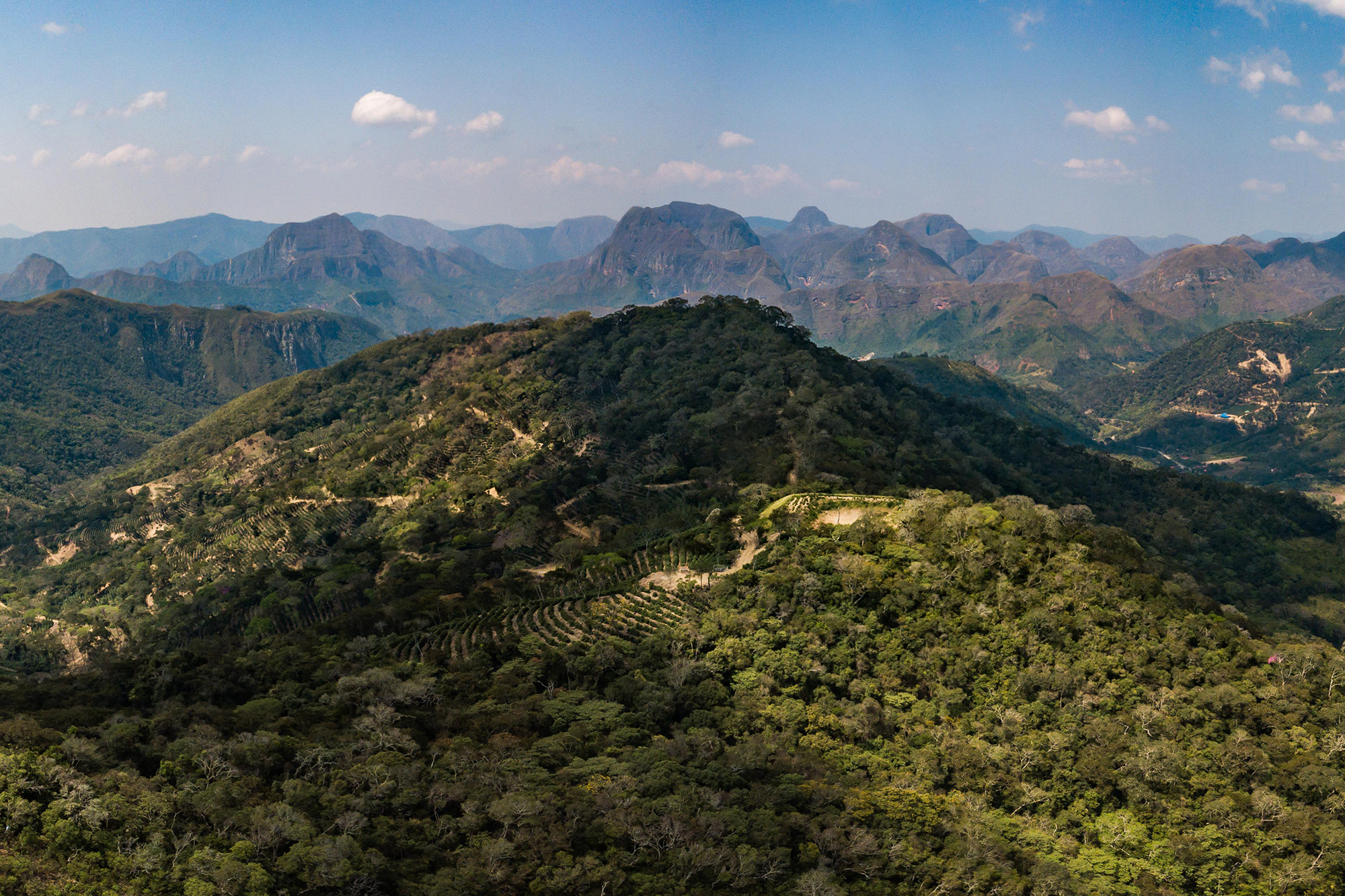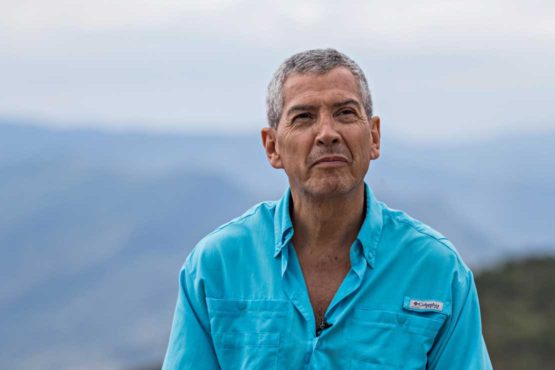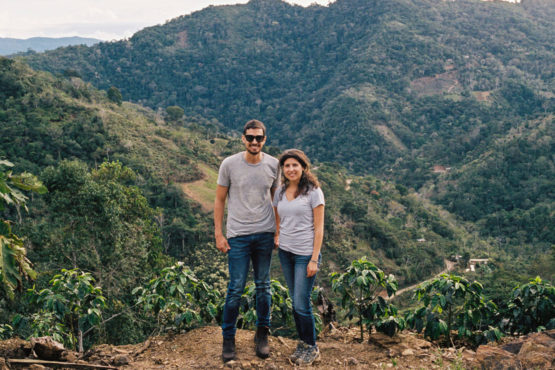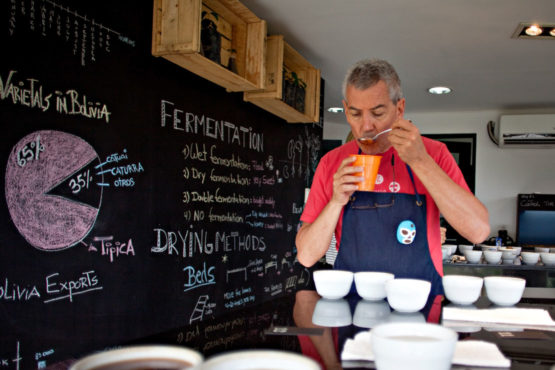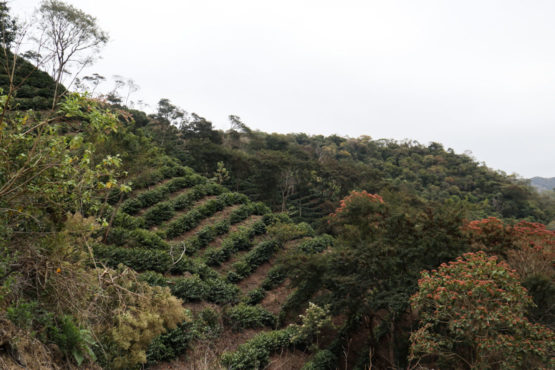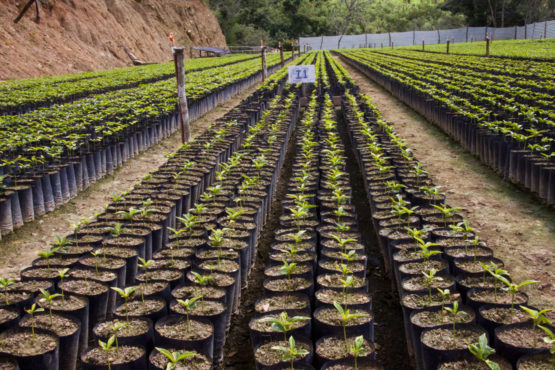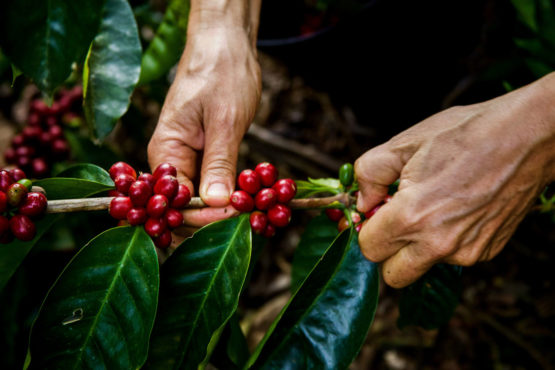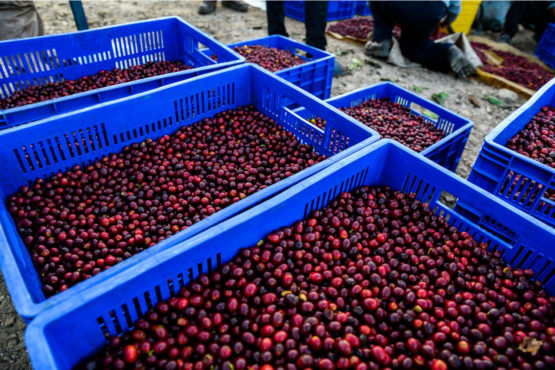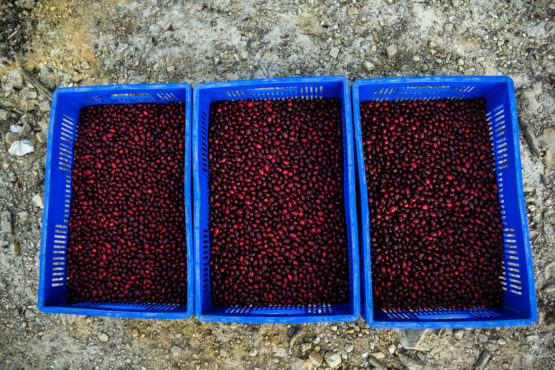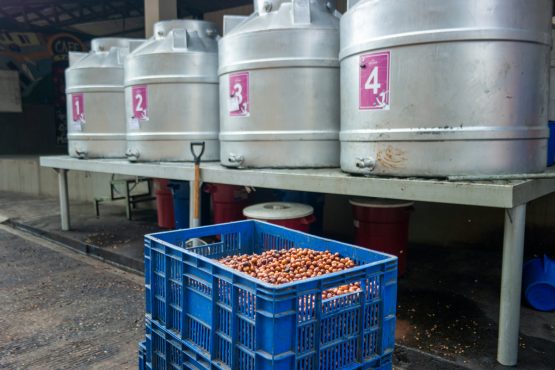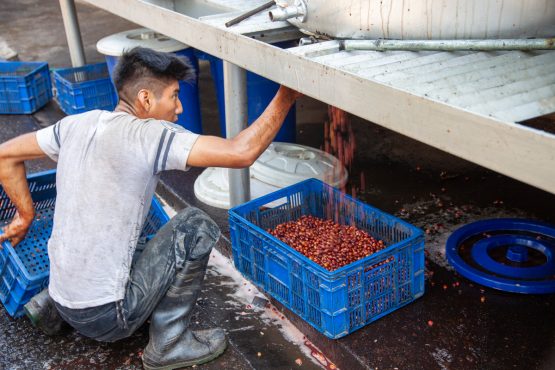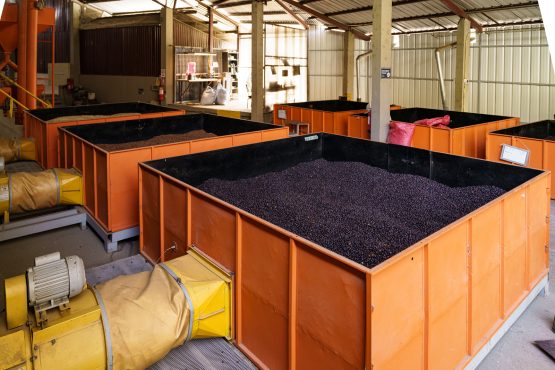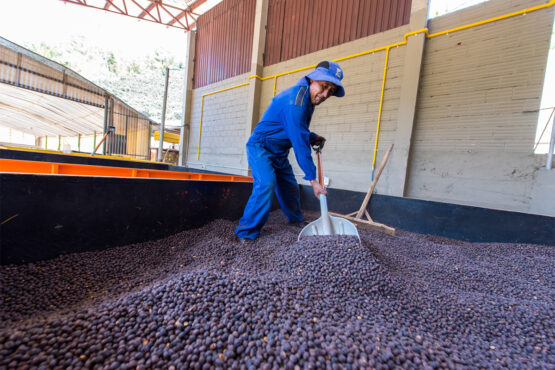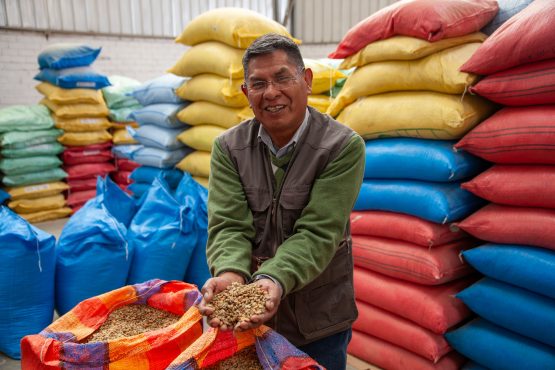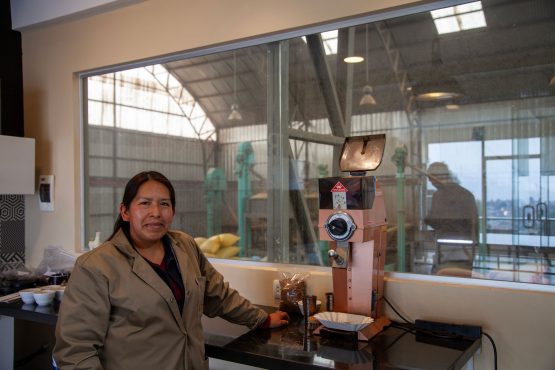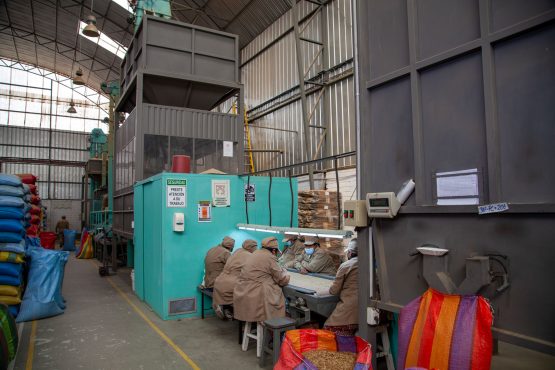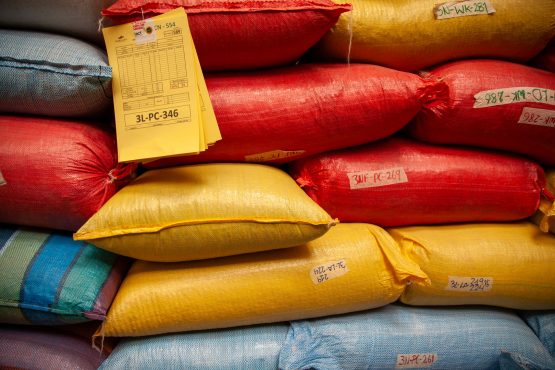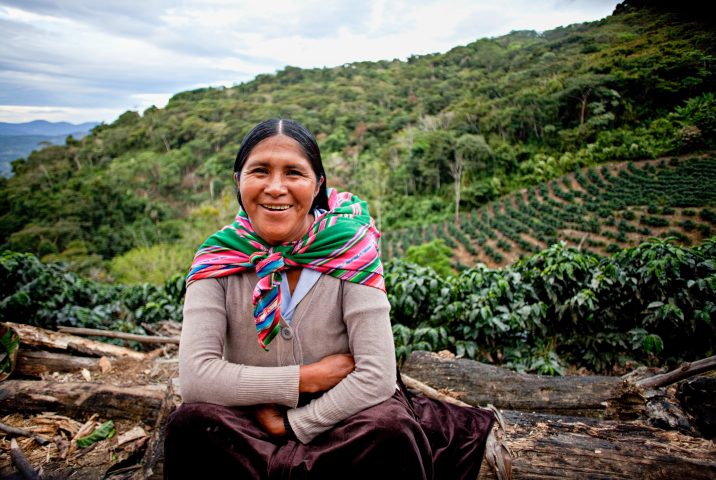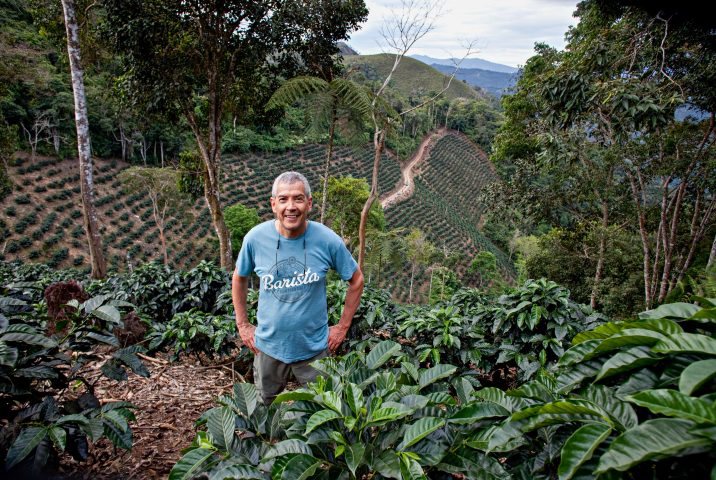Floripondio Batian Natural Ferment
Vibrant and distinct, with a unique profile. Plum wine, cherry syrup and bergamot with almond blossom florals.
This 100% Batian nano-lot comes from Floripondio, one of four farms owned and operated by the Rodríguez family in Bolivia’s Samaipata region.
Samaipata is a relatively new coffee growing region located in the eastern department of Santa Cruz, at the foot of the Bolivian Andes. The Rodríguez family, who also own the exporting business Agricafe Bolivia, first established their business in the traditional coffee growing region of Caranavi, where they currently operate eight farms and a wet mill. In 2012 they expanded to the region of Samaipata, which is historically known for producing food crops like fruit and vegetables.
This was risky move – coffee had never been planted here before – but Pedro recognised the region had the right conditions to produce exceptional quality coffee, with high elevations, nutrient-rich soil and a similar climate to Caranavi’s (with the main difference being that Samaipata is a little less tropical and drier). After their success in growing exceptional coffee at their first farm in the region, El Fuerte, the Rodríguez family have continued investing more heavily in Samaipata, planting three more farms, including Floripondio in 2014, and building a wet mill to process the coffees grown here.
Samaipata means ‘Rest of the Heights’, and is a small, picturesque town. A scenic road that runs along a beautiful river leads to the town centre, attracting Bolivians and tourists alike. The valley surrounding the town ranges between 1,600-1,800 meters above sea level, and has a fairly extreme climate. During the day the temperature is 25-30°C, dropping to as low as to 8-10°C during the night. This slows down the ripening of the coffee cherries, allowing the sugars of the fruit to concentrate in the flesh and bean, which in turn helps produce an incredibly sweet and complex coffee.
This 47 hectare farm (29 of which are planted with coffee) is found at a staggering 1,710 meters above sea level. It has two breathtaking viewpoints: one over the spectacular Andes mountain ranges , and another over the Amboró National Park, which is considered as having some of the world’s greatest biodiversity of flora and fauna. This protected park park is located west of the department of Santa Cruz, in the so-called “Codo de los Andes”, where the western mountain range changes course to the south.
Floripondio’s high elevation, tropical microclimate and distinct soil profile, made it the ideal place for the Rodríguez family to establish their variety nursery. To date, they have planted and trialled over 50 varieties at the farm, with the objective to work out which are best suited to the land and this particular latitude and elevation. Lemon and tangerine trees separate each of the varieties planted, and the fruit is sold at the local markets. This particular lot is 100% Batian.
Named after the highest peak on Mt. Kenya, the Batian variety was bred by Kenya’s Coffee Institute and released in 2010. Since then, it has successfully been propagated throughout Kenya, with Latin American growers beginning to experiment with it in recent years. This is due to the fact that the variety is very adaptable, as it is suited to most climates and can start producing coffee in its second year (while more traditional varieties need three years before production is viable). The tree has high levels of resistance to rust and disease, and produces exceptional cup quality—much like its relatives, the very flavourful SL-28 and SL-34 varieties grown in Kenya.
The family’s learnings have also been shared with local producers through a training program they has developed called ‘Sol de la Mañana.’ Head here to learn more about this wonderful program, and here to learn more about the incredible work the Rodríguez family and Agricafe are doing in Bolivia.
Floripondio gets its name from the Floripondio flowers (commonly known as Angel’s Trumpet in English) that are native to the area and grow throughout the farm. The flower is thought to possess some hallucinogenic properties, and legend has it that as soon as you lay down beneath a Floripondio tree you start dreaming. This is apt, as the natural scenery at Floripondio is breathtakingly beautiful and can, at times, seem like something out of a dream.
HOW THIS COFFEE WAS PROCESSED
Pickers from the Samaipata community carefully handpick the coffee at Floripondio every day during the harvest. These pickers have been trained to select only the very ripest cherries and pass through the farm every day to ensure cherries are only picked at their prime. Selective picking is extremely important for special micro-lots like this one, to ensure the sweetest cup. The Rodríguez family has found that harvesting the very ripest (almost purple) cherries result in the most complexity and distinction in the coffee.
Pedro draws a lot of inspiration from the wine industry in his approach to coffee production, and is always innovating and trialling different processing techniques. This lot was processed with experimental techniques, part of the Rodriguez’ family’s long term strategy to achieve the greatest distinction and diversity in their special lots. As Pedro’s daughter, Daniela shares: “We’re keeping a registry of all the data we’re compiling, to use in the coming seasons. It includes information on the types of tanks used, bacteria and yeast activity, ambient temperature and weather conditions… we’re working hard to identify the ideal processing conditions for each variety and farm.” Watch the video below, to see how this coffee was processed:
Cherries for this lot were delivered to Agricafe’s state of the art mill El Fuerte in the evening. After being inspected and weighed, the coffee cherry was carefully sorted by weight using water, and floaters were removed. Following this, the coffee was disinfected, in a similar process used for wine grapes, and then placed whole, with their skin, or ‘cascara’ intact, to ferment under controlled temperature and pH conditions in the family’s brand new custom-built stainless steel tanks for 48 hours. Shutting the containers allows CO2 to build up, increasing the temperature and catalysing a process of intracellular fermentation. The team at El Fuerte made sure the lid remained shut for the full period of fermentation, to ensure no oxygen touched the cherries and that the punch-like, boozy aroma remained trapped inside.
The fermented coffee cherries were then laid out to dry on patio for 48-72 hours, and then finished off in one of Buena Vista’s ‘stationary box’ (or coco) dryers, until it reached 11.5% humidity in a process that takes around five days. These boxes are series of steel containers that are typically used for drying cocoa pods. They use a gentle flow of warm air from below the coffee bed to dry the parchment slowly and evenly. Coffee was stirred manually at regular intervals to further ensure it dried at a uniform rate.
Once the coffee was dry, it was transported to La Paz where it was rested before being milled at Agricafe’s dry mill, La Luna. At this state-of-the-art mill, the dried pods were first hulled and sorted using machinery, and then by a team of workers who meticulously sorted the coffee again (this time by hand) under UV and natural light. The mill is one of the cleanest and most impressive we have seen – you can read more about it here.
